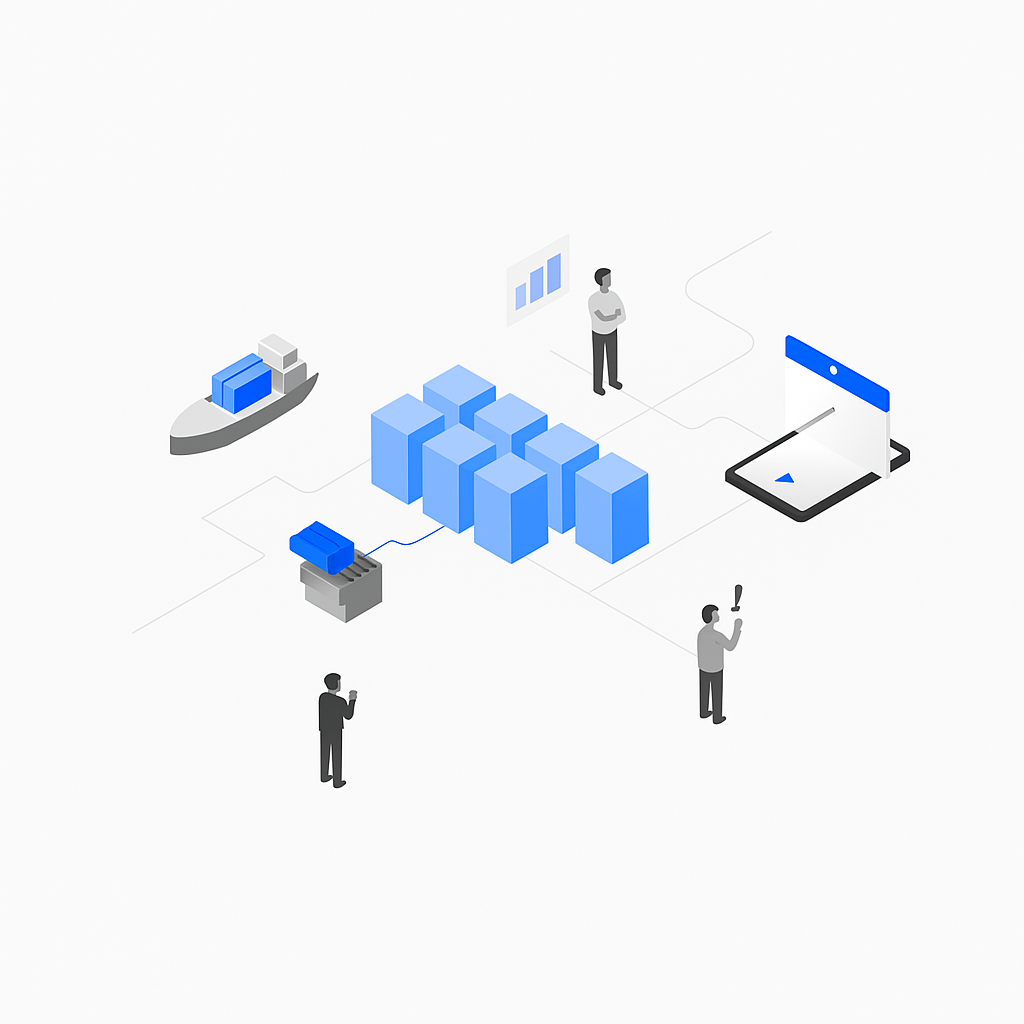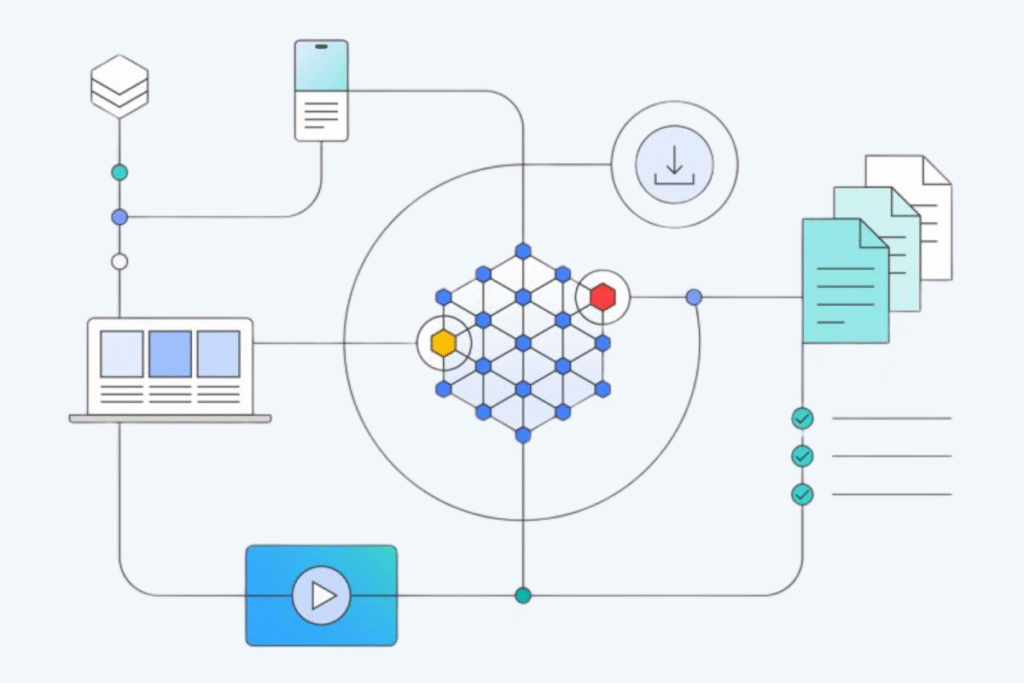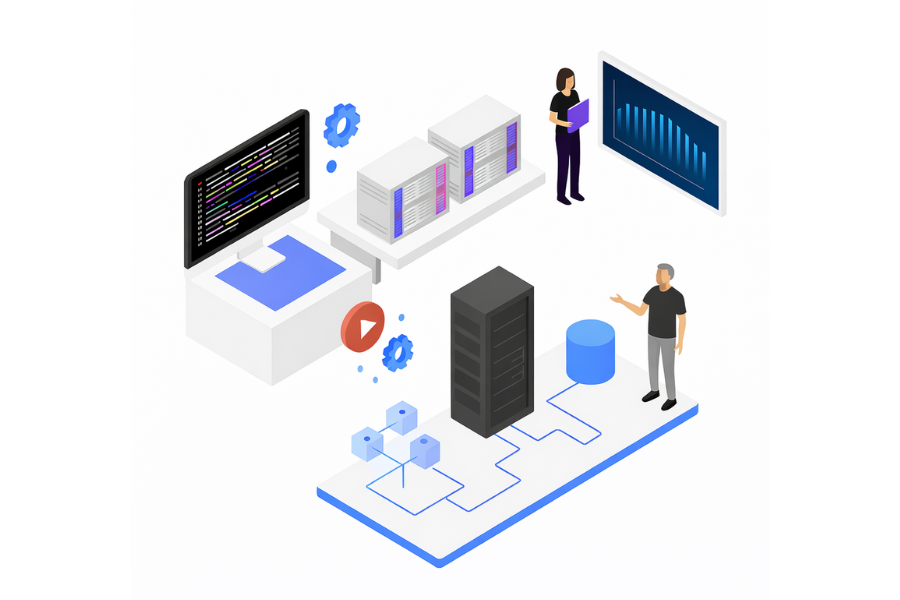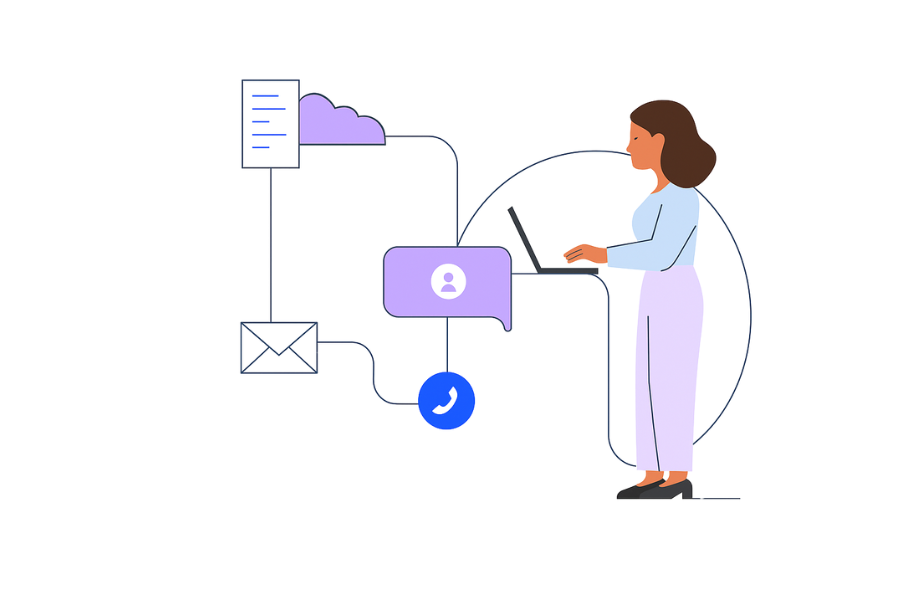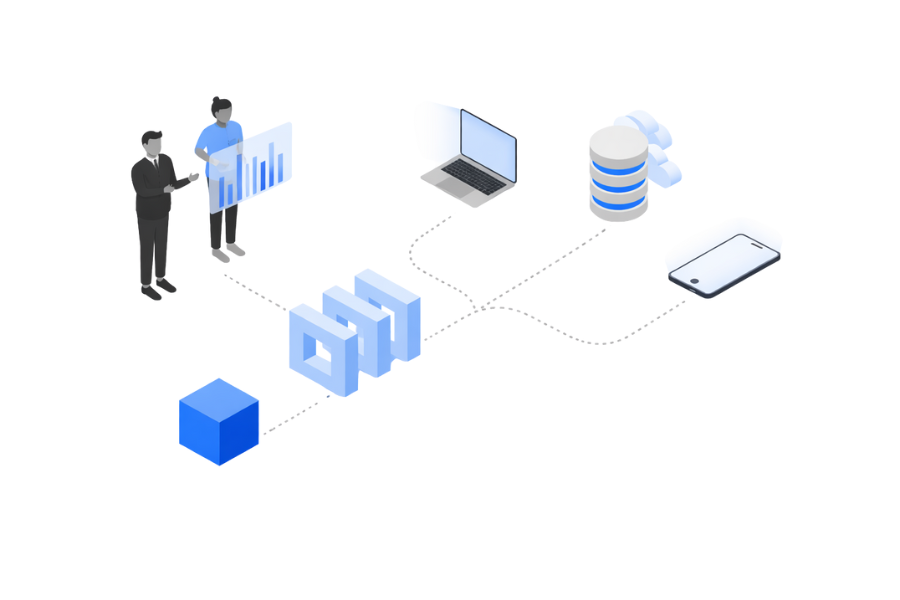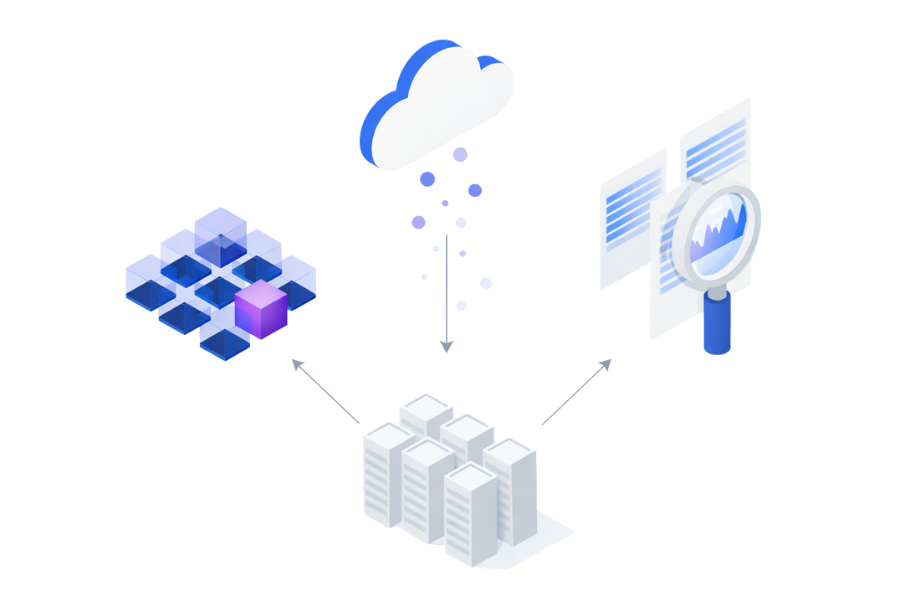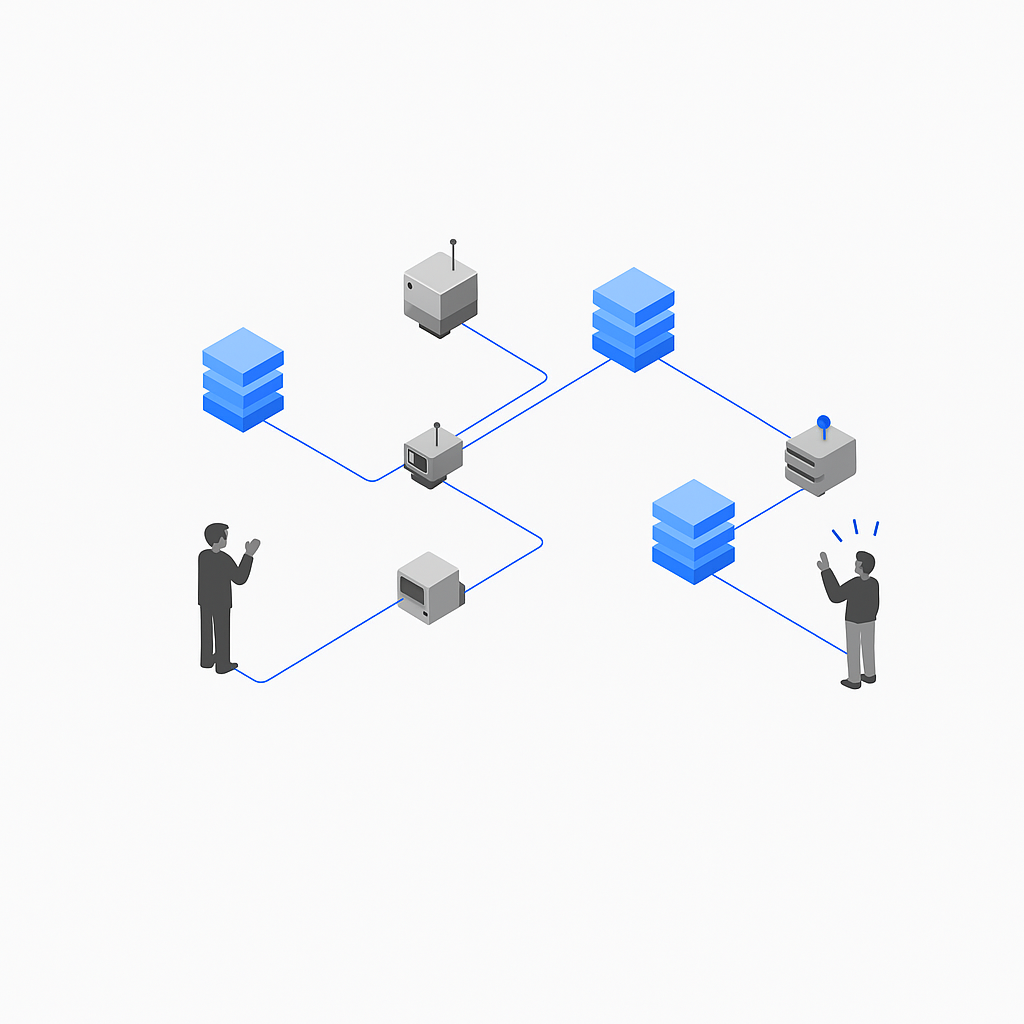
Unlock the Power of Integration with AI-Driven Automation
Seamlessly connect applications and data to drive faster, smarter business outcomes.
Overview of the Product
IBM Cloud Pak for Integration is a modern, hybrid integration platform that empowers organizations to connect applications, data, and systems—wherever they reside. Powered by AI and automation, it transforms traditional integration approaches into intelligent, outcome-driven processes. From application integration and API management to event streaming and high-speed file transfer, IBM Cloud Pak for Integration accelerates time-to-value and delivers flexibility and scale to support your evolving business needs.
Why Choose IBM Cloud Pak for Integration?
Automates complex tasks, improving efficiency and reducing manual intervention.
Connects apps and data across hybrid environments, ensuring flexibility and scalability.
Works across any cloud provider and integrates with multiple cloud-native architectures.
Robust enterprise-grade security, ensuring data protection and compliance at every stage.
No-code tools and pre-built templates make it easier to integrate quickly and efficiently.
Real-time event processing and high-speed data transfers boost productivity and performance.
What the Numbers say?
Features

Build and manage integrations across apps with ease.

Create, secure, and optimize APIs to accelerate the API lifecycle.

Automate responses triggered by real-time events to meet customer needs.

Migrate data with Aspera, transferring files at exceptional speeds.

Ensure data integrity and reliable communication with MQ.

Leverage cloud-native security, scalability, and end-to-end encryption.
Case Studies
Driving Sustainable Logistics with IBM webMethods Integration
A global logistics and supply chain provider partnered with Nexright to modernize its operations using IBM webMethods Integration Platform. The transformation enhanced data visibility, improved system efficiency, and reduced integration costs — enabling the company to deliver sustainable, transparent, and future-ready logistics services across 170+ global locations.
Business challenge
The logistics industry faced growing complexity driven by global disruptions, rising demand, and sustainability mandates. The company’s legacy systems limited agility, data visibility, and scalability across supply chain operations.
To remain competitive and meet sustainability targets, the organization needed to:
- Integrate over 700 legacy applications into a unified platform.
- Enable seamless communication between internal systems and partners.
- Improve transparency for customers, partners, and regulators.
- Optimize operational efficiency and reduce IT maintenance overhead.
Solution
The company deployed IBM webMethods Integration Platform to create a connected, resilient logistics ecosystem that links applications, processes, and data in real time. This solution unified fragmented systems, improved cross-border collaboration, and laid the foundation for sustainable digital logistics.
Solution Highlights:
- Connected 750+ application interfaces across business units.
- Enabled API-driven integration for real-time supply chain data exchange.
- Provided centralized monitoring for all integrations and workflows.
- Enhanced data visibility and traceability across transport networks.
Solution components
- IBM webMethods Integration Platform
- IBM Cloud Integration Services
- IBM Cloud Pak® for Business Automation
Unified Global Integration Framework
Created a standardized integration layer across all logistics operations, connecting transport, warehousing, finance, and customer management systems.
Sustainability and Efficiency Gains
Reduced paper-based processes, improved route planning, and enabled better tracking and reporting for environmental performance metrics.
Real-Time Visibility and Analytics
Provided customers and partners with real-time tracking, inventory insights, and data-driven decision support through API-enabled dashboards.
Result
- 750+ integrations migrated successfully into a single cloud-based framework.
- 500+ customers onboarded with faster data exchange and improved transparency.
- Enhanced cross-border collaboration and operational efficiency.
- Improved supply chain visibility for regulators and clients.
- Strengthened digital sustainability posture across global logistics operations.
IBM webMethods integration has positioned our logistics organization for the future — ensuring seamless data flow, real-time visibility, and sustainable growth across our global operations.
— Chief IT Officer, Leading Global Logistics Provider
Enabling Seamless Banking with IBM Cloud Pak for Integration and IBM Instana
A leading regional financial institution transformed its banking infrastructure by adopting IBM Cloud Pak® for Integration, IBM Instana®, and IBM Turbonomic®. This modernization accelerated API performance, enhanced observability, and optimized infrastructure efficiency—empowering the bank to deliver faster, more secure, and customer-centric digital banking services.
Business challenge
The bank’s existing IT ecosystem was built on legacy systems that limited agility, slowed transaction processing, and made it difficult to scale operations efficiently. As the organization expanded, it faced increasing demands for:
- Real-time transaction monitoring and integration.
- Improved API response and system reliability.
- Streamlined infrastructure management and cost optimization.
- Stronger compliance and security in a cloud-native environment.
To overcome these challenges, the bank needed a modern integration framework that would unify services, reduce operational friction, and support digital scalability.
Solution
Partnering with Nexright, the financial institution modernized its core systems using IBM Cloud Pak® for Integration (CP4I) as the central integration layer, with IBM Instana® for observability and IBM Turbonomic® for automated resource optimization.
Solution Highlights:
- IBM Cloud Pak for Integration (CP4I): Enabled seamless routing of online banking and payment transactions across APIs and applications through IBM API Connect® and ACE.
- IBM Instana®: Delivered end-to-end observability for real-time visibility into API performance, enabling rapid issue detection and resolution.
- IBM Turbonomic®: Dynamically optimized application resource allocation—ensuring consistent performance and scalability with minimal cost overhead.
Together, these IBM technologies provided a unified foundation for digital banking modernization, ensuring high availability and operational excellence.
Solution components
- IBM Cloud Pak® for Integration
- IBM Instana®
- IBM Turbonomic®
Cloud-Native Banking Infrastructure
Migrated to a containerized, API-driven environment enabling faster service deployment and improved resilience.
Intelligent Observability
Used AI-powered monitoring with IBM Instana to proactively detect anomalies and optimize user experience across critical banking operations.
Automated Resource Optimization
IBM Turbonomic ensured efficient resource usage—balancing CPU, memory, and storage allocation while maintaining compliance and security.
Result
- 35,000+ API calls handled per day across digital services.
- 0.773 milliseconds average API response time, ensuring high-speed transactions.
- Improved scalability and faster rollout of new digital banking features.
- Enhanced reliability, visibility, and cost efficiency through automation.
- Reduced infrastructure overhead while maintaining strong data security standards.
By modernizing with IBM’s integration and observability tools, we achieved both performance excellence and operational stability. Our digital platform now runs seamlessly, supporting millions of customer transactions with high reliability and speed.
— Chief Information Officer, Leading Regional Financial Institution
What The Users Say

“The seamless integration capabilities of IBM Cloud Pak for Integration have allowed us to scale rapidly and respond to market changes in real-time. We’ve seen incredible results in terms of customer satisfaction and operational efficiency.”
FAW-Volkswagen

“IBM Cloud Pak for Integration has revolutionized our ability to connect applications and streamline processes. The AI automation has significantly improved efficiency and reduced the time spent on manual tasks.”
Tine
FAQ's
What is IBM Cloud Pak for Integration and what does it offer?
IBM Cloud Pak for Integration is a containerized, hybrid integration platform that enables API management, application integration, messaging, event streaming, and high-speed data transfer.
How does Cloud Pak for Integration support hybrid cloud strategies?
It allows organizations to integrate apps, data, and services across on-prem, cloud, and SaaS environments—bridging legacy systems with modern microservices using Kubernetes.
What components are included in IBM Cloud Pak for Integration?
Key components include IBM API Connect, App Connect, MQ, DataPower, Event Streams (Kafka), and Aspera. Together, they support all integration styles—modern and traditional.
How is Cloud Pak for Integration different from point-to-point tools?
It offers a unified, AI-powered platform for scalable, secure, and governed integrations, eliminating brittle point-to-point connections that slow down digital transformation.
Can it handle real-time and batch integrations?
Yes. It supports both real-time event-driven and batch-based integration use cases, making it suitable for diverse enterprise scenarios.
What is the advantage of running on Red Hat OpenShift?
OpenShift provides enterprise-grade Kubernetes orchestration, scalability, and security, making Cloud Pak deployments portable across clouds with consistent performance.
Does it support API lifecycle management?
Absolutely. API Connect within Cloud Pak provides end-to-end API management, including design, security, versioning, usage analytics, and developer portal support.
What services does Nexright offer for Cloud Pak for Integration?
Nexright delivers architecture design, container orchestration, secure API strategies, and CI/CD-based deployment for enterprise-scale integrations using the IBM Cloud Pak suite.
